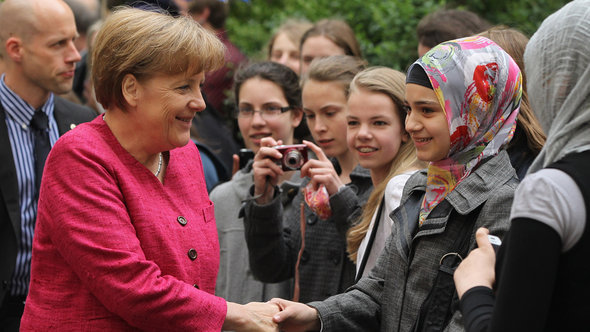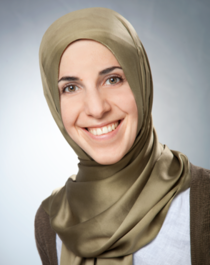Time for Majority Society to Change Its Attitude
Today, no one in German society disputes that the country's societal reality is shaped by the consequences of immigration and emigration. This is illustrated by a number of political statements, including the one made recently by Maria Böhmer, Federal Government Commissioner for Migration, Refugees and Integration, who said: "Germany is now a country of immigration."
Be that as it may, as a German-Turkish Muslim citizen in Germany, I see and experience in myriad ways that the question of whether someone legitimately belongs – the question of the symbolic "us" and "them", the either/or option – is all the more controversial. As a result, I find myself in situations every day where I have to justify or twist my belongingness in order to belong and to be able to take part in social life with as few barriers as possible.
Under pressure to negotiate
In my day-to-day life, I adapt to the familiar question regarding my ethnic roots by providing information about my German–Turkish origins before swiftly asking the person with whom I am speaking about his or her ethnic origins and those of his/her parents and grandparents.

In most cases, the person generally responds after a few seconds of confusion either with an anecdote from a holiday spent in beautiful Turkey, which confirms my belongingness to Turkey, or with an irritated and angry dismissal of my question, which really only stems from my natural curiosity and my desire to get to know the other person.
Other Muslim women are also under great pressure to negotiate their identity in everyday situations. For example, Muslim women wearing headscarves who go to job interviews adapt to the doubts people have regarding their headscarves – which are seen as foreign and not very customer friendly – by emphasising to the interviewers how highly trained they are, the fact that they can speak several languages, and the importance of transcultural openness in the face of the current economic and demographic situation. In some cases they even allow other people to touch their headscarves so that they can quite literally grasp that a headscarf really is nothing more than a piece of cloth.
Finally, in order to avoid being disadvantaged as a result of prejudices and to have the chance to demonstrate their skills, they offer to work as interns for a certain amount of time. Either the astonished interviewer accepts the deal or bows to the collective assumption that Muslim women who wear headscarves are incapable of work.
A promising paradigm shift

The recognition by politicians over the past ten years that Germany is a country of immigration is a recognition of the country's social and lived reality and is evidence of a promising paradigm shift. That being said, the time has finally come for people of migrant origin to be recognised as belonging – politically, legally, and symbolically. No ifs, no buts.
This would mean that I would no longer have to react to symbolic boundaries by re-adjusting my belongingness over and over again and by proving that I belong just to be able to take part in society on an equal footing.
At the same time, I wish that the German majority would change its attitude to this issue so that my belongingness is seen as something quite natural and my identification with Germany is simply accepted as a legitimate belonging.
For this to happen, however, majority society would have to rethink its understanding of what legitimately belonging to Germany means and, above all, to really live out this new understanding. After all, migration not only changes the migrant; it also changes the host society. But how far is the host society willing to go to re-invent itself and adapt?
Melahat Kişi
© Magazin 51°/Mercator-Stiftung/Qantara.de 2013
Translated from the German by Aingeal Flanagan
Editor: Lewis Gropp/Qantara.de
